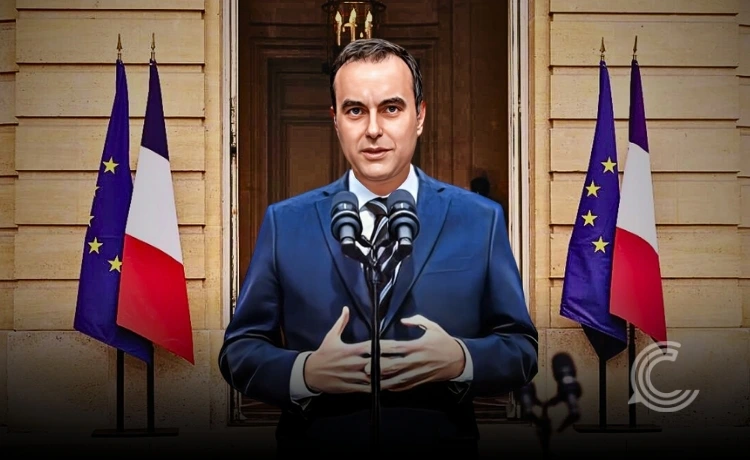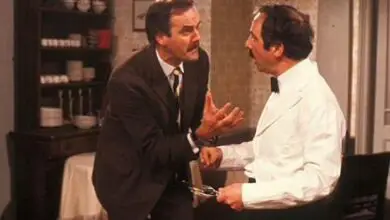French PM Sébastien Lecornu Resigns Less Than a Month in Office

Key Highlights –
- Sébastien Lecornu quits as French PM after just 26 days, citing political deadlock.
- Macron faces mounting pressure to form a stable government amid a divided Parliament.
- Markets react sharply to the crisis, raising concerns over debt and investor confidence.
France’s newly appointed Prime Minister Sébastien Lecornu has resigned just 26 days after taking office, deepening the political crisis facing President Emmanuel Macron’s government.
The resignation came only hours after Lecornu unveiled his cabinet, signalling his inability to form a stable government in a deeply divided parliament. The Elysee Palace confirmed the move, stating: “Mr Sébastien Lecornu has submitted the resignation of his government to the President of the Republic, who has accepted it.”
BREAKING: French Prime Minister Sebastien Lecornu has resigned https://t.co/dXJKk3dsv2 pic.twitter.com/l1qBk61d1I
— Reuters (@Reuters) October 6, 2025
Lecornu, who succeeded François Bayrou after his government collapsed in early September, said the political environment made it impossible for him to lead effectively. “The conditions were not fulfilled for me to carry out my function as Prime Minister,” he said, accusing political factions of “partisan appetites” and a lack of willingness to compromise.
Political Turmoil Deepens for Macron’s Administration
Lecornu’s resignation adds another chapter to France’s growing instability, making him the shortest-serving prime minister in the country’s Fifth Republic. His brief tenure was marked by criticism over the composition of his cabinet, which many lawmakers said was too similar to Bayrou’s outgoing team.
The 39-year-old had tried to position himself as a consensus-builder, promising to avoid invoking Article 49.3, a constitutional tool that allows the government to bypass Parliament when passing legislation. However, that approach left him exposed in a fragmented legislature, where Macron’s centrist alliance lacks a majority.
Lawmakers across the political spectrum had threatened to reject Lecornu’s cabinet in a confidence vote, forcing his resignation before Parliament could even convene. The failure reflects the deadlock that has gripped French politics since Macron’s re-election in 2022, when no party secured a clear majority.
Markets React as France Faces Economic Pressure
The political crisis quickly spilled into the markets. The CAC 40 index fell by nearly two percent on Monday morning, while French government bond yields rose, signalling investor unease. The euro also weakened slightly against the dollar as traders assessed the uncertainty surrounding Macron’s next move, as stated by Reuters.
France’s fiscal challenges have only added to the instability. The country’s public debt stands at around 114% of GDP, one of the highest in the eurozone, while its budget deficit has hovered near 5.8%. Lecornu’s proposed spending cuts and tax reforms faced opposition from both left-wing and far-right parties, who accused him of protecting the political elite while ignoring growing social discontent.
Financial analysts warned that continued political paralysis could undermine investor confidence at a time when France is trying to maintain its credit rating and manage mounting debt.
Macron Faces Pressure to Regain Control
President Macron now faces the difficult task of appointing yet another prime minister capable of commanding parliamentary support. With calls for a snap election growing louder, some members of Macron’s own Renaissance party fear the government could lose further credibility if instability continues.
Since 2022, Macron has rotated through several prime ministers; Lecornu was his fifth in just two years, as each struggled to manage a divided assembly. Opposition parties, from Marine Le Pen’s far-right National Rally to Jean-Luc Mélenchon’s left-wing alliance, have accused Macron of failing to listen to voters’ concerns and relying too heavily on technocratic figures.
Lecornu’s resignation has also reopened debates about the structure of French governance itself. Critics argue that the semi-presidential system gives the president too much control over the prime minister, leaving little room for political independence.
A Brief but Symbolic Tenure
Before taking on the premiership, Lecornu was France’s youngest defence minister, known for overseeing a major military expansion plan through 2030 and negotiating peace talks in overseas territories like Guadeloupe. A former conservative who joined Macron’s centrist movement in 2017, he had built a reputation as a pragmatic administrator.
His sudden exit underscores the scale of the challenges Macron faces in his second term: rising public discontent, mounting economic strain, and a fractured political landscape.
As France waits for a new government to be announced, uncertainty hangs over both the markets and the political class. For Macron, Lecornu’s departure is more than a personnel change; it’s a stark reminder of how fragile his leadership has become in a country struggling to find common ground.



